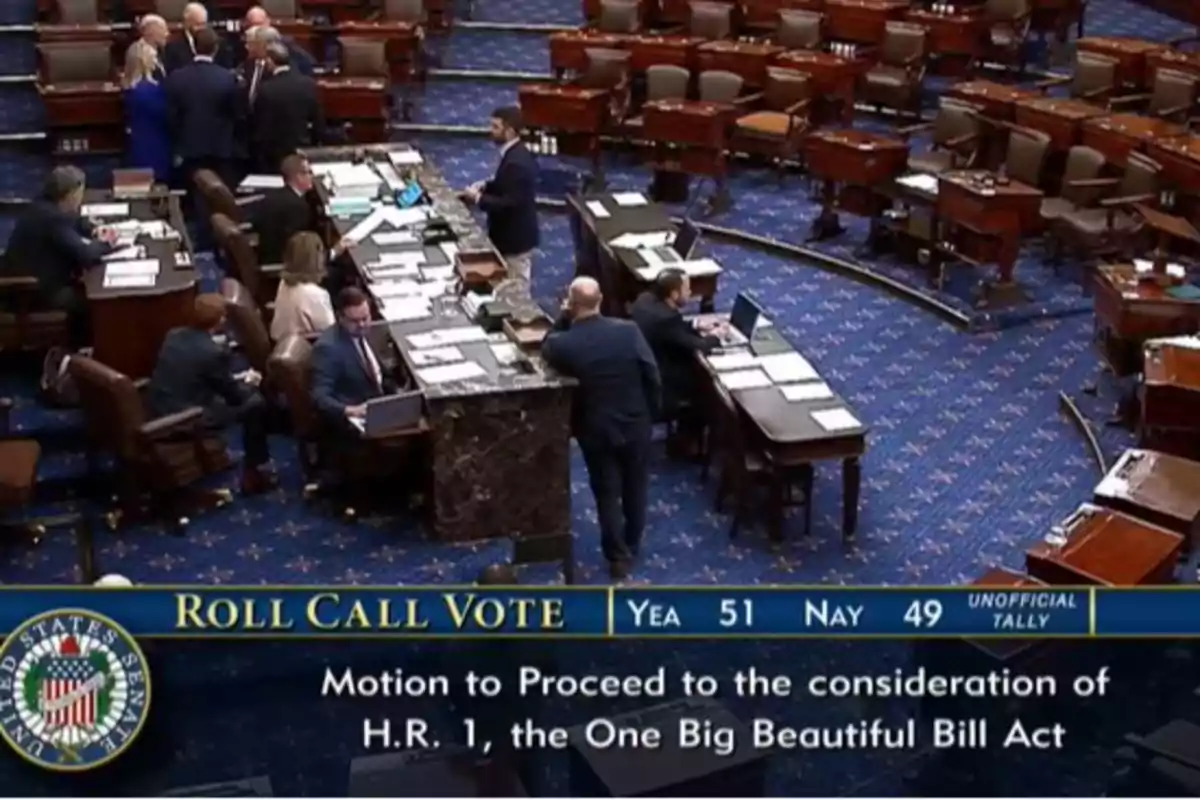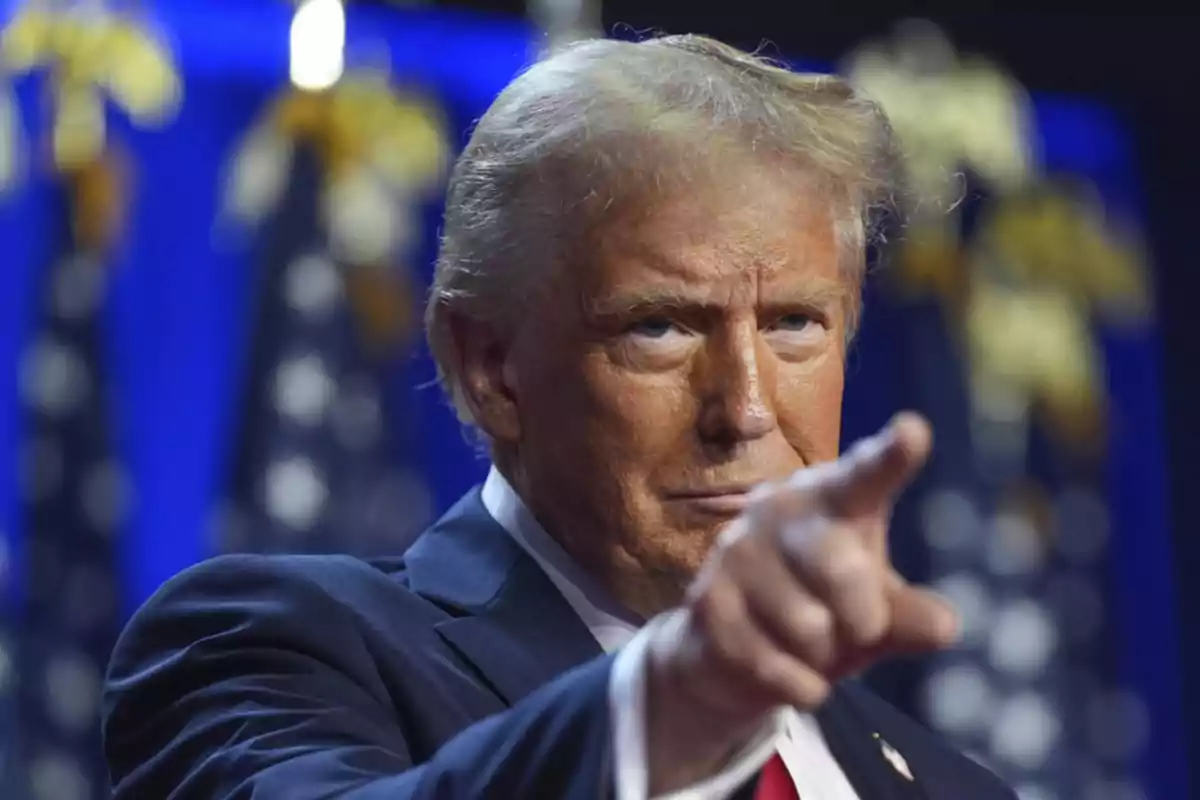
The Senate approved moving forward with a key law for Trump in a very close vote.
The United States upper chamber decided to continue debating the 'Big Beautiful Bill' in a key vote
The United States Senate voted on Saturday to begin debate on the spending bill promoted by President Donald Trump, which he described as his "GREAT, BEAUTIFUL, MAGNIFICENT" project.
At 940 pages, the measure advanced by a narrow margin of 51-49 in a procedural vote, despite opposition from two Republican senators, Thom Tillis (Republican-North Carolina) and Rand Paul (Republican-Kentucky), who joined Democrats in an attempt to block its progress.
Senator Ron Johnson (R-Wisconsin), who initially voted against, changed his decision at the last moment, allowing the bill to move forward to debate. Vice President JD Vance was present at the Capitol during the session, prepared to cast a tie-breaking vote if necessary.

Debate on the proposal has already begun, and it is expected to be lengthy. Senate Majority Leader Chuck Schumer (Democrat-New York), promised that the entire bill will be read before a final vote is held.
Trump celebrated the result on his Truth Social network, especially thanking Senators Rick Scott, Mike Lee, Ron Johnson, and Cynthia Lummis, as well as the other Republicans who voted in favor, calling them patriots who love the United States. The president has pressured Republicans to speed up the bill's approval, aiming to have it on his desk before July 4.
The bill seeks, among other objectives, to make the 2017 tax cuts permanent, eliminate taxes on tips and overtime, increase funding for border security and eliminate green energy tax credits approved during the Biden administration. To finance these measures, the legislation contemplates raising the debt ceiling by approximately 5 billion dollars.
During Saturday's session, Trump warned that opposing his proposal would be a "definitive betrayal" and publicly lashed out against Senator Tillis, threatening not to support him in a Republican primary. He also criticized Senator Paul after the vote, questioning his inexplicable rejection of the measure.

The new draft of the bill, delivered to the Senate on Friday night, includes most of the policies previously approved in the House of Representatives, along with significant changes, especially in social programs.
Federal spending for the Supplemental Nutrition Assistance Program (SNAP) is reduced and a cut in Medicaid funding for rural providers is postponed. In addition, a 25 billion USD fund is created to support these providers between 2028 and 2032.
Another important change is the temporary increase of the state and local tax (SALT) deduction limit to 40,000 USD with an annual inflation adjustment until 2029, before returning to the current limit of 10,000 USD.
Additionally, a controversial tax on certain companies and foreign investors is eliminated, following a request from Treasury Secretary Scott Bessent, which eased Wall Street's concerns.

In environmental matters, the end of tax credits for wind and solar energy projects was moved up: now they must be operational before the end of 2027 to receive incentives.
The bill also reintroduces a plan to sell up to 500,000 hectares of Department of the Interior land in 11 western states for urban development and housing, which has been criticized by some Republican senators from those states.
The House of Representatives approved a previous version of the bill by a single vote on May 22, but will have to vote again once the Senate finalizes the proposed changes.

More posts: